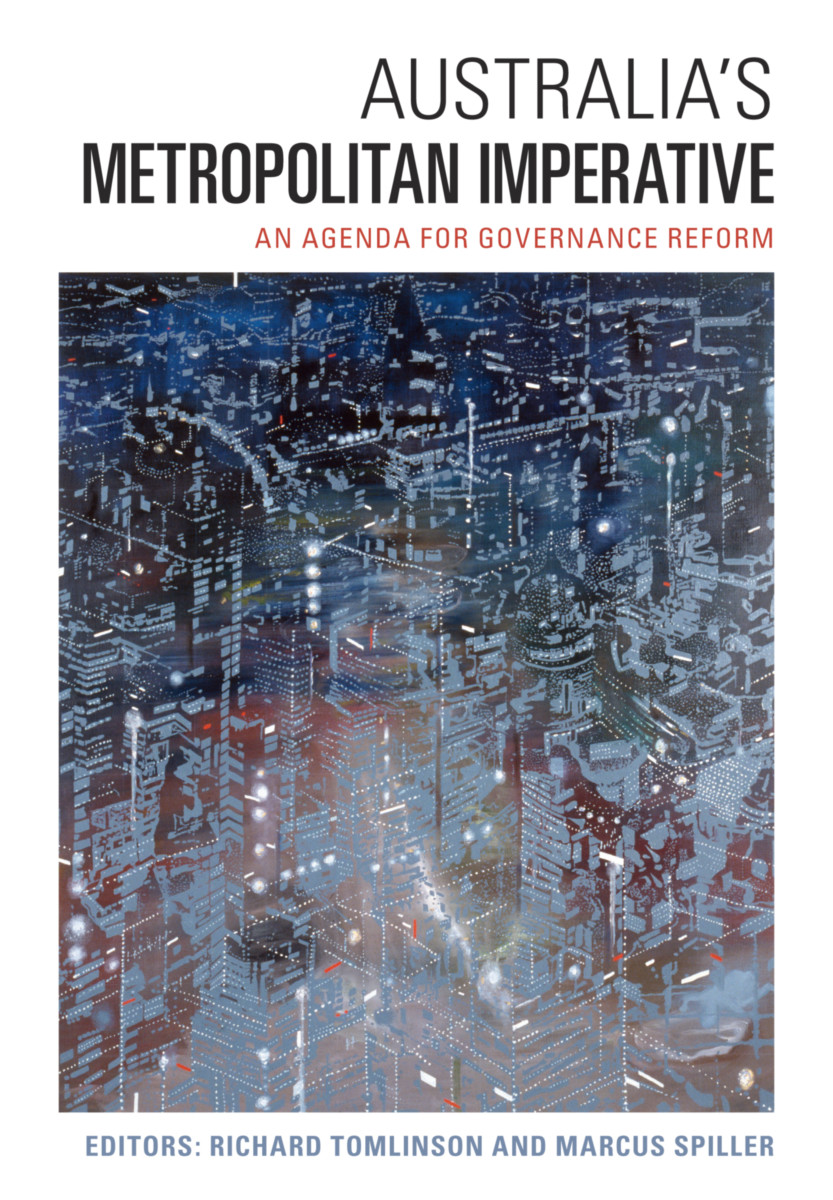EXCELLENCE IN SCIENCE PUBLISHING
Australia's Metropolitan Imperative
An Agenda for Governance Reform
- Publisher
CSIRO Publishing - Published
23rd July 2018 - ISBN 9781486307968
- Language English
- Pages 264 pp.
- Size 6.625" x 9.625"
- Images 23 illus & 4 photos
Since the early 1990s there has been a global trend towards governmental devolution. However, in Australia, alongside deregulation, public–private partnerships and privatization, there has been increasing centralization rather than decentralization of urban governance. Australian state governments are responsible for the planning, management and much of the funding of the cities, but the Commonwealth government has on occasion asserted much the same role. Disjointed policy and funding priorities between levels of government have compromised metropolitan economies, fairness and the environment.
Australia’s Metropolitan Imperative: An Agenda for Governance Reform makes the case that metropolitan governments would promote the economic competitiveness of Australia’s cities and enable more effective and democratic planning and management. The contributors explore the global metropolitan "renaissance," document the history of metropolitan debate in Australia and demonstrate metropolitan governance failures. They then discuss the merits of establishing metropolitan governments, including economic, fiscal, transport, land use, housing and environmental benefits.
The book will be a useful resource for those engaged in strategic, transport and land use planning, and a core reference for students and academics of urban governance and government.
Features:
• The first comprehensive examination of the need for a fourth sphere of governance in Australia, covering the country’s major city-regions, the metropolitan areas.
• Empowers readers to be able to analyze and critique the policy propositions of federal and state governments for Australia’s cities.
• Includes comparative international case studies.
1. Introduction: metropolitan governance in the absence of metropolitan government -- Richard Tomlinson
Australian Backdrop
2. Hobbled by history? The governmental gap in metropolitan Australia -- Graeme Davison and David Dunstan
3. Citizen Unseen: Metropolitan democratic and knowledge deficits -- Richard Tomlinson
4. Infrastructure misadventures -- Sophie Sturup
International Precedent
5. The metropolitan renaissance and the model(s) of metropolitan government -- Daniel Kübler
6. Subsidiarity and metropolitan innovation in the USA -- Marcus Spiller and Rhys Murrian
7. Metro mayors, participative democracy and the construction of city-regional governance in England: Manchester’s experience of DevoManc -- Iain Deas
8. Metropolitan governance in Toronto and Vancouver -- Martin Horak and Andreanne Doyon
9. Auckland – An assessment of New Zealand’s experiment with metropolitan governance -- Christine Cheyne
Assessing the Rationale for Metropolitan Government in Australia
10. Economic competitiveness, planning and productivity -- Marcus Spiller and Laura Schmahmann
11. A fair go: Metropolitan government and housing -- Richard Tomlinson and Marcus Spiller
12. Fiscal decentralisation and autonomy -- Vincent Mangioni
13. Australian Cities and the Governance of Climate Change
Peter Newton, Nigel Bertram, John Handmer, Nigel Tapper, Richard Thornton and Penny Whetton
14. Integrated transport and land use planning -- Peter Newman
15. Shaping the metropolis -- Marcus Spiller
Conclusion
16. Conclusion: the metropolis in the federation -- Marcus Spiller
Index
Richard Tomlinson
Richard Tomlinson is Professor in Urban Planning at the University of Melbourne. His current research interests are urban governance, knowledge transfer and policy processes. His most comprehensive research has been in Australia, India and South Africa. He has served as a Visiting Professor at Columbia University and at the University of the Witwatersrand, as a Visiting Scholar at MIT and as a Guest Scholar at the Brookings Institution. For many years he was a private consultant in issues related to cities.
Marcus Spiller
Marcus Spiller is Principal and Partner in SGS Economics & Planning Pty Ltd. Alongside his 30 years of consulting in urban economics, he has worked as an academic, adviser to the Minister for Planning in Victoria, and as a senior executive in the Queensland government. He is an Adjunct Professor at RMIT University and at the University of NSW, an Associate Professor at the University of Melbourne, a former member of the National Housing Supply Council and a former National President of the Planning Institute of Australia.


